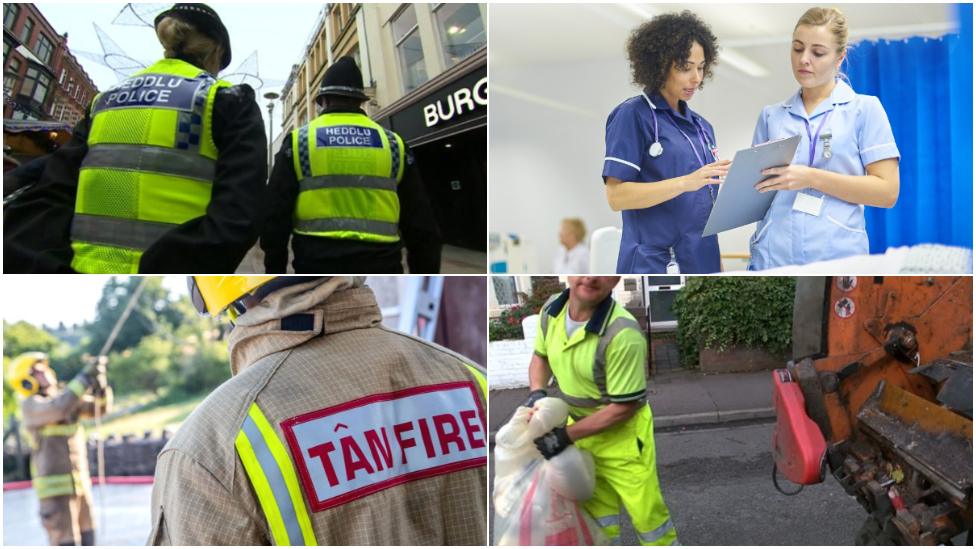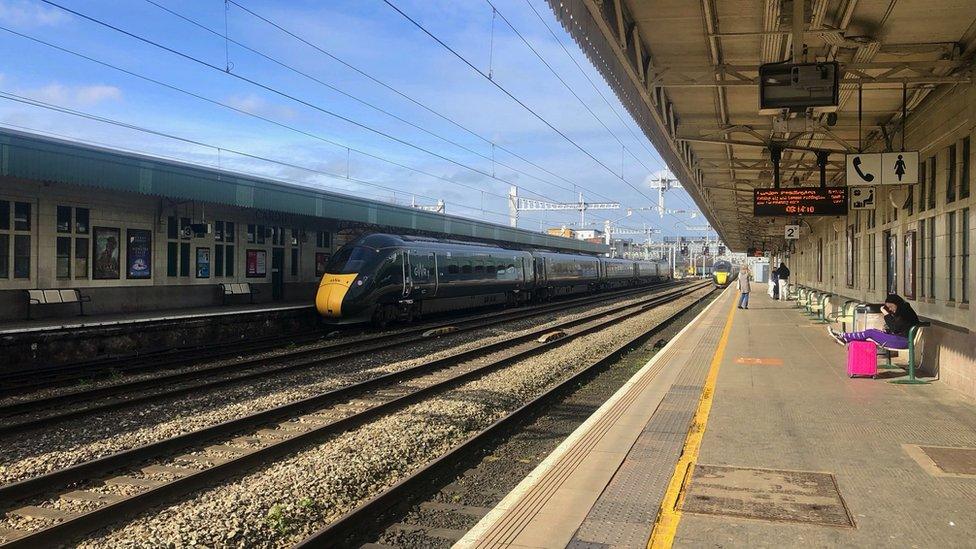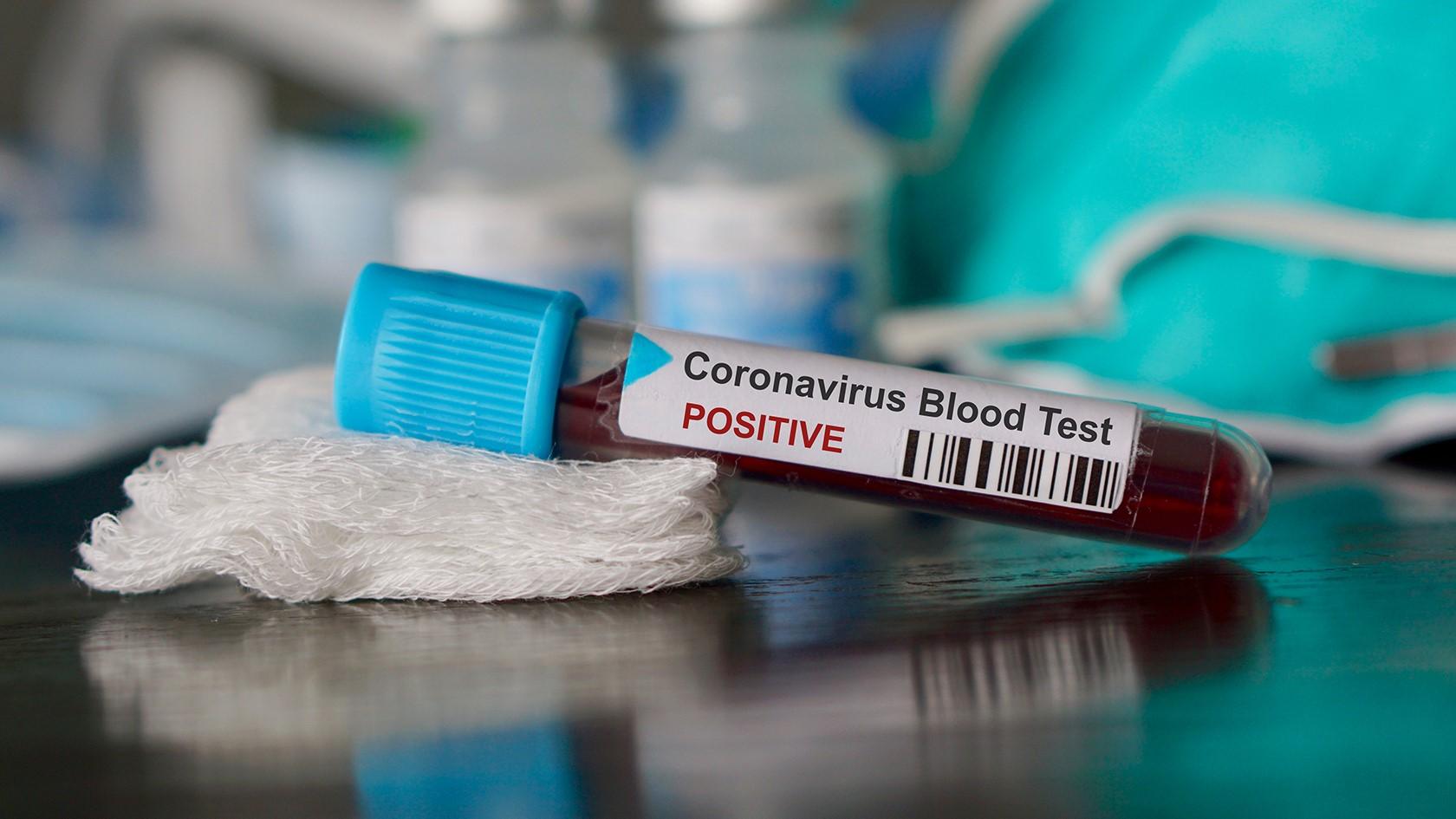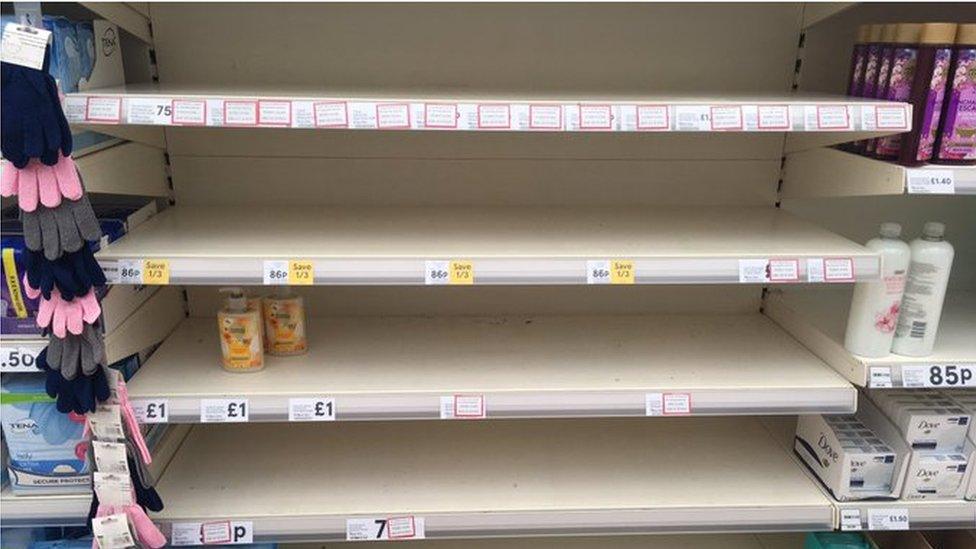Coronavirus: Last day of school for most pupils in Wales
- Published
Coronavirus: Pupils in Wales react as schools close
It is the last day in school for most pupils in Wales - as classrooms prepare to close during the coronavirus pandemic.
The Welsh Government has ordered lessons to be suspended as part of the fight against the spread of Covid-19.
It comes as a third death from coronavirus in Wales was confirmed.
The 71-year-old patient had underlying health issues and was being treated at the Princess of Wales Hospital in Bridgend.
"I'm very sorry to report that a third patient in Wales who tested positive for Covid-19 has sadly died," said the chief medical officer for Wales, Dr Frank Atherton.
"I offer my sincere condolences to their family and friends and ask that their request for privacy is respected."
Public Health Wales said a further 21 people had tested positive for the virus, taking the total number of confirmed cases to 191.
However, the real figure in communities will be much higher, said officials.
They added that testing capacity would be expanded beyond patients and health care workers, with further guidance to be issued at that point.
While all schools are officially closing later today, school buildings will re-open on Monday for the children of key workers in Wales to be cared for.
The Welsh and UK governments have published a list of those individuals identified as vital to keeping the country moving - and to help tackle the pandemic.
The list has been separated into eight categories, including frontline health workers and social care staff, nursery and teaching staff, and those involved in food production and delivery.
It also includes the police, those in key public services - such as the running of the justice system and public broadcast - transport workers and critical staff in financial services and utilities.
"If your work is critical to the Covid-19 response, or if you work in one of the critical sectors listed below, you should make arrangements for your child to be safely cared for at home," said Welsh Education Minister Kirsty Williams.
"If there is no safe alternative, provision should be made in schools or other settings."
But officials stressed that "every child who can be safely cared for at home should be".

Who are 'key workers'?

The full list includes:
Frontline health workers such as doctors and nurses
Some teachers and social workers
Workers in key public services including those essential to the justice system, religious staff, and public service journalists
Local and national government workers deemed crucial to delivering essential public services
Workers involved in food production processing, distribution, sale and delivery
Public safety workers including police, armed forces personnel, firefighters, and prison staff
Essential air, water, road and rail transport workers
Utilities, communication and financial services staff, including postal workers, and waste disposal workers

Anyone who thinks they fall within the critical categories above is asked to check with their employers whether their specific role is necessary for "essential public service".
Children classed as "vulnerable" will also be offered care in schools.
This includes those supported by social care, those with safeguarding and welfare needs, and "looked after" children.
"We know that schools will also want to support other children facing social difficulties, and we will support head teachers to do so," added UK officials.
Business leaders' body the Confederation of British Industry (CBI) has welcomed the decision to publish the list of key workers.
CBI chief UK policy director Matthew Fell said: "Defining which workers are critical to the national effort is a difficult task.
"But the need for different jobs will change in the weeks ahead, so the list must be kept under constant review with additions where necessary."
Economy Minister Ken Skates has called for action to help firms hit by coronavirus
In Wales, Economy Minister Ken Skates called on the chancellor to pay workers' wages during the crisis, warning some firms have "just hours to survive".
He also called on shoppers to act "responsibly" and in a "compassionate way", and to stop panic buying.

Cardiff Central station was virtually deserted on Friday morning
In other developments on Friday, Transport for Wales announced it was reducing its train services from Monday.
"In line with the rest of the UK rail industry, and based on advice from public health bodies, we have taken the difficult decision to reduce weekday passenger services moving forward," said a spokesman.
"We will continue to prioritise peak periods in order to ensure we do not create overly busy travelling conditions and will be monitoring the situation on a daily basis to ensure people that need to travel during the period can still travel when absolutely necessary."
Bus companies First Cymru and Stagecoach South Wales also said they would be running reduced services from Monday.
National health screening programmes will also be suspended from Monday for the time being, the Welsh Government said.
Services affected are Breast Test Wales, Cervical Screening Wales, Bowel Screening Wales, Diabetic Eye Screening Wales and Wales Abdominal Aortic Aneurysm Screening.
Health Minister Vaughan Gething said: "As we face the challenge of dealing with this pandemic, the well-being of the people of Wales is my top priority.
"Many people who attend screening programmes are in a higher-risk category for coronavirus and it is essential that we minimise risk to those people at this time."
- Published20 March 2020

- Published20 March 2020

- Published19 March 2020

- Published20 March 2020

- Published27 March 2020
